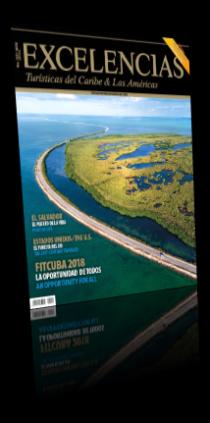- Cuba, The World Capital of Health
THE PRESTIGE OF CUBA’S PUBLIC HEALTH HAS MADE THE ISLAND NATION ACHIEVE AN EXTRAORDINARY RESPONSE WORLDWIDE WHEN IT COMES TO CONVENING SCIENTIFIC EVENTS AND ACTIVITIES RELATED TO THE SECTOR
The obvious achievements of Cuba in the field of public health have time and again made people ask quite a few questions: how can a Third World nation of scarce economic resources boast a list of advances and indicators that rub elbows with the highest life expectancies in the region? How has it managed to be labeled by the World Health Organization (WHO) as the first country to effectively eliminate direct HIV transmission from mother to child and congenital syphilis? How has it been able to eradicate not only malaria (1970), but also a dozen other immuno-preventable diseases? How has Cuba been able to showcase an infant mortality rate of only 4 per a thousand live births and even consider to further cut down on those rates?
It is all about the prestige of the Cuban health system: universal, accessible, and free which guarantees an extraordinary response worldwide when Cuba convenes scientific events and activities related to the sector. This is the interest of professionals from other nations to bear out these strengths, to look closely at the work of various specialized centers and recognized institutions.
For this reason, each year the country is home to important events that address topics linked to health sciences, associated to such specialties as epidemiology, social and community medicine; and whose headquarters go from colleges and universities to outstanding institutions for this purpose.
In various niches, be it congresses, seminars or symposiums, the scientific activity of the island’s healthcare sector has zeroed in on thoughts and discussions, like how to place knowledge and scientific-technical advances in the health field, based on the wellbeing of our people.
And just about everybody is engaged. This is even accounted for by events like those organized by Comercializadora de Servicios Medicos Cubanos S.A. (CSMC, S.A.) in the province of Holguin, based in Villa Cocal-Quinqué, in the form of the Health and Quality of Life Workshop, slated on May 26-28, 2018, and the Second International Meeting on the Rehabilitation of Addictive Disorders, scheduled on June 26-30.
The Third Cuba-Salud 2018 International Convention is also penciled in as a privileged space for sharing experiences and knowledge, as well as for setting up partnerships. Under a motto that reads “Universal Health for Sustainable Development”, the event is meant to render in benefits for the world population.
It is no coincidence then that on April 23-27, 2018, delegations from about 90 countries will huddle at the International Conference Center in Havana to discuss communicable and non-communicable diseases, social determination on healthcare, primary care, family medicine, medical education, health economics and efficiency, as well as international medical collaboration, among other topics.
In the same breath, the convention planned by Cuba’s Ministry of Public Health (MINSAP) is expected to have a turnout of about seventy high-level delegations, including over 50 entourages presided over by ministers from Africa, Latin America and the Caribbean, Europe and Asia, and involving more than 150 boldface names, like presidents of medical societies, representatives of international networks, university deans and chairpersons of companies dedicated to cutting-edge technology in this field.
“This convention wraps up all the successes and the scientific lifespan of the sector in the country. Annually, MINSAP, in conjunction with scientific societies and other relevant institutions, develops somewhere between 600 and 700 events. In 2017, for example, that figure exceeded 680 (about 100 pigeonholed as international congresses and symposia),” said Ileana Morales Suarez, chief of Science and Technological Innovation with MINSAP.
“Cuba-Salud 2018 draws on this experience and showcases the work scientific societies have conducted in the course of these years, in the field of public health,” said Pastor Castell-Florit Serrate, director of Cuba’s National School of Public Health, and chairman of the National Council of Scientific Health Societies and the convention’s scientific commission.
"After the World Health Assembly and the Steering Council of the Pan American Health Organization (PAHO) to the OPS and WHO, Cuba-Salud 2018 is one of the scenarios that most health ministers from around the globe attend,” explains Furihman Morales, who announced that Dr. Tedros Adhanom Ghebreyesus and Carissa Etienne, general director and director, respectively, of the abovementioned organizations, will be in attendance.
The “Salud para Todos” Trade Fair, now in its 14th edition and slated to be held in parallel at the Pabexpo fairgrounds with a turnout of some 30 countries and an extensive scientific program, is also worth mentioning. Ileana Morales Suarez also serves as executive secretary of both events.
It is the most important commercial event in the sector, in which nearly two dozen Cuban health institutions that sell medical services, such as Cira Garcia Central Clinic, the Siboney International Clinic, the La Pradera International Health Center La Pradera and the Camilo Cienfuegos International Clinic, are in attendance.
The biggest stand –roughly 200 square meters- is the CSMC, S.A.’s, which stand for 20 new products and services in different business niches: medical and health services in Cuba, medical and professional services abroad, academic services and events, optical items, drugstores, natural and traditional medicine services, and quality of life services.
A newcomer in this year’s event will be the first foreign investment forum, organized by the Chamber of Commerce of Cuba and aimed at strengthening negotiations with CSMC, S.A. and BioCubaFarma. According to Niurka Marsán, a specialist of the Chamber of Commerce’s Promoting Group, the goal is to attract biotechnological pharmaceutical companies, healthcare centers, venture capital funds, as well as research and development, in an effort to see various projects through.
“We can all learn from everyone. That’s what it’s all about, and putting people at the center of our health systems,” said Ileana Morales Suarez.



























































































































